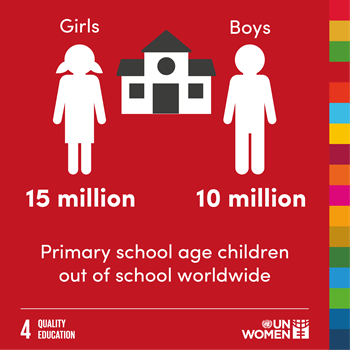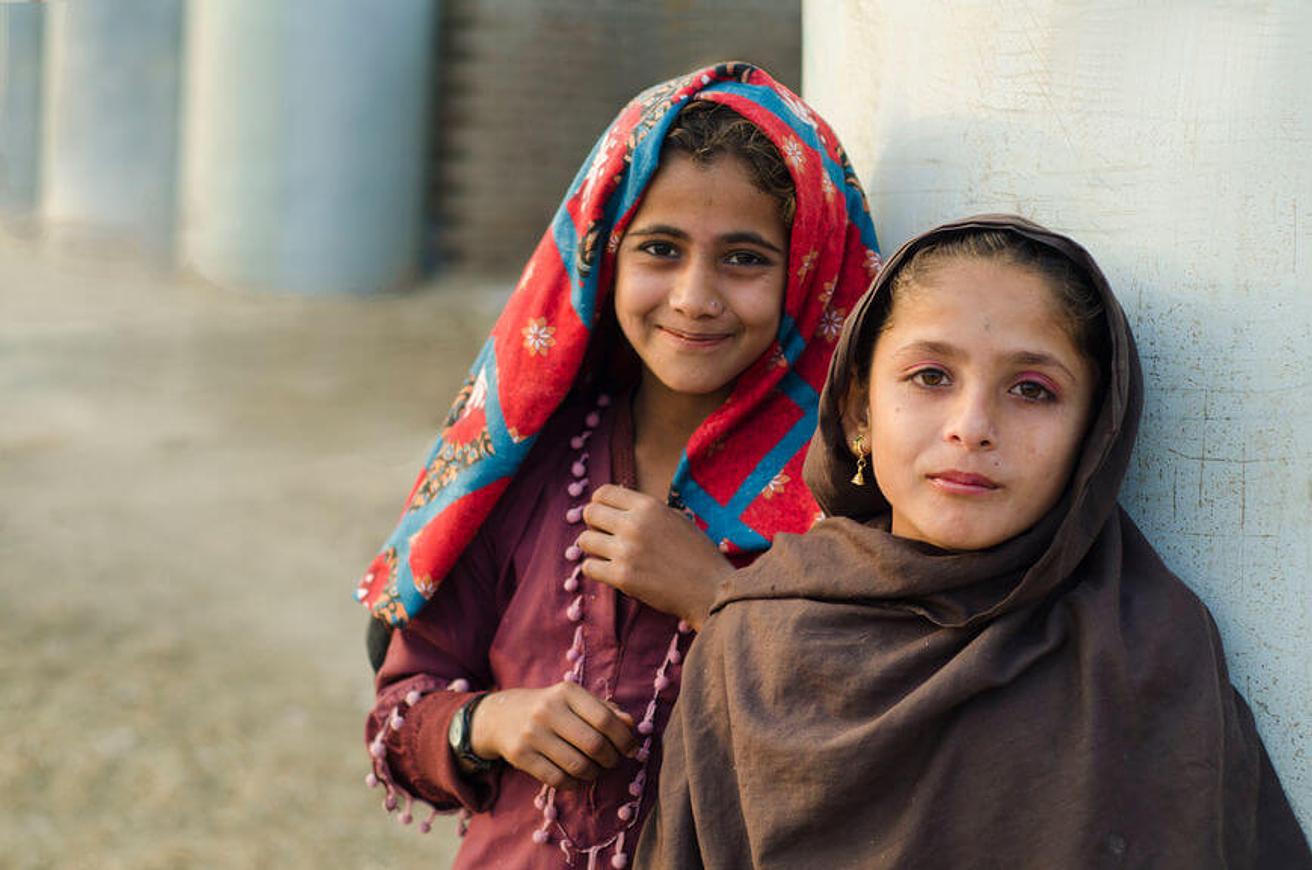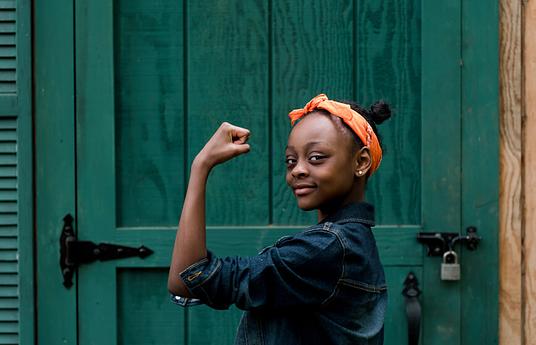One of the target areas for the United Nations, Sustainable Development Goal No. 4, Quality Education, is to eliminate gender disparities in education and ensure equal access to all levels of education and vocational training for the vulnerable, including persons with disabilities, indigenous peoples and children in vulnerable situations, by 2030. With little over a year left, the progress has been slow. As many as 48.1 percent of girls remain out of school in some regions of the world. As per UN Women, 15 million girls are not in primary school right now, compared to 10 million boys. As these girls hit puberty, the school dropout rate increases for reasons including early pregnancy, early marriage and the expectation that they should contribute to household work.

Developing countries and education systems seem to have a harder time managing this gender gap, but young leaders like Malala Yousafzai from Pakistan has empowered many young girls and boys to advocate for education and a change in social expectations from girls & young women. Born in 1997, her father raised her to value education and as a young girl she spoke out publicly on behalf of girls for their right to learn. Not accepted by the Taliban extremists in Swat Valley, Malala was shot on the left side of her head by a gunman when she was only 15 years old.
While learning a bit about Malala’s story, our Youth Ambassador Folakemi Fariogun, 19 from Nigeria was "inspired to not only survive but also conquer the odds." Folakemi continues to share,
For Muneeb Hasan, 15, our Youth Ambassador from Pakistan, Malala is one of the most inspiring figures in the world of education. He appreciates her role as an avid educational reformer and celebrates her for being the youngest female to achieve the Nobel Peace Prize. "If I was to be like Malala I would try my best to help the youth to get out of illiteracy regardless of their age, gender, and tribe. Health and peaceful life should be a basic right for every person living on earth and that's for what I would fight for", says Muneeb.
Malala currently is studying Philosophy, Politics, and Economics at the University of Oxford (UK) and with the help of the Malala Fund, promises to fight every day to ensure all girls around the world receive 12 years of free, safe, quality education.
At HundrED we are celebrating Malala Day and this young Nobel Peace Prize winner’s vision for girl’s education and leadership by sharing some unique education innovations from our community that work to help young girls and women learn and lead.
Make Ghanaian Girls Great! (Ghana)
The Varkey Foundation’s ‘Making Ghanaian Girls Great’ (MGCubed) project uses innovative satellite-enabled technology to deliver quality education to marginalized students in Ghana and successfully address some of the country’s key education challenges. With the support of DFID’s Girls’ Education Challenge, the MGCubed Project impacts 18,000 primary, Junior High school and out of school girls and boys by equipping them with life-skills and self-confidence to pursue fulfilled lives. The objective of the intervention is to positively impact learning outcomes in Maths and English and promote retention of girls in school.
Skateistan (Afghanistan, Cambodia and South Africa)
Using the hook of skateboarding, Skateistan provides education to over 2,000 vulnerable children and youth across Afghanistan, Cambodia and South Africa. Across all programs, Skateistan aims to include a minimum of 50% girls. To ensure that this target is met Skateistan creates a 'female-first environment' by employing female teachers and running girls-only sessions each week. With safe places to learn and play, Skateistan unites and empowers children from various ethnicities, nationalities and socio-economic backgrounds, enabling them to create a brighter future for themselves and their community.
Shine for Girls (USA)
SHINE for Girls empowers young women to value their own potential and capabilities within Science, Technology, Engineering, and Mathematics (STEM) by employing a unique curriculum that blends maths with dance. SHINE for Girls was founded by Kirin Sinha, an MIT graduate who set up the program after the experience of regularly being the only female in her university maths classes. The program is based on the idea that every girl is good at math – they just might not know it yet.
betty for schools (UK)
Betty for schools based out of the United Kingdom realizes the taboo surrounding periods & girls reaching puberty. They believe that breaking the period taboo begins with education by encouraging open, honest and real conversations. With an intention to play the role of the best big sister, betty for schools provides free accredited resources that teachers can use to educate their pupils aged 8-12 about periods.
Afghanistan National Institute of Music (Afghanistan)
During the time of the Taliban rule and despite Afghanistan’s rich cultural heritage, local people were banned from listening to or practicing music, including in schools. Afghanistan National Institute of Music is Afghanistan’s first such institute that trains children in traditional Afghan and classical Western music while providing high-quality academic education. Over half the students are orphans or members of the street community and almost a third are girls. The school demonstrates the power of music in bringing about social change through promoting gender equity, democracy, and open-mindedness.
How are you joining Malala and investing in a better future for more than 130 million girls who are out of school today?


